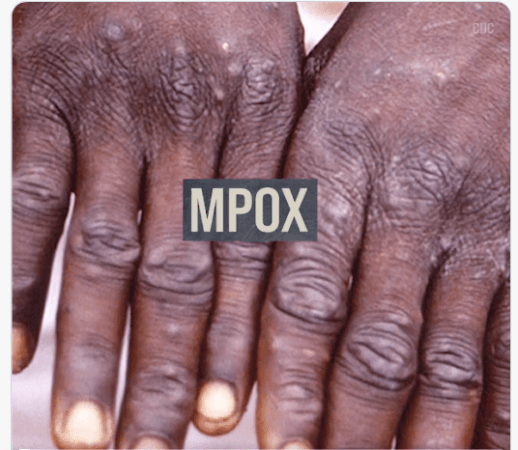
For the second time in two years following an outbreak in the Democratic Republic of Congo, the World Health Organisation declared mpox as a Public Health Emergency of International Concern" this week.
Earlier known as the monkeypox virus, mpox has already been reported in Sweden and Pakistan after the WHO declared the virus an emergency. With the two countries outside of Africa reporting the cases of the virus, in India Tamil Nadu's Directorate of Public Health and Preventive Medicine directed the Airport Health Officers and Port Health Officers to be on high alert, especially when it came to passengers arriving from the Democratic Republic of Congo and Central African nations.
Tamil Nadu health authorities issue circular
In a circular directed to all District Health Officers (DHO), Airport Health Officers in Chennai, Tiruchi, Madurai, and Coimbatore, and Port Health Officers in Chennai and Tuticorin, everybody has been advised to get familiarized with the clinical aspect of mpox, undertake strict thermal screening and check history of travel to any of the affected countries in the last three weeks.
How far has mpox spread?
After the WHO declared the virus illness as an "emergency" at least two countries outside of Africa — Sweden and Pakistan have also reported cases. But concerns are being raised about the slightly new strain of the virus, namely, Clade 1, which has been spreading in countries since almost 2022. The numbers affected are high and alarming in the Democratic Republic of Congo, which reportedly is experiencing the biggest outbreak of the disease ever recorded with tens of thousands of people infected. The government of DRC declared an epidemic back in December 2022.
Mpox spreads to 13 African countries
In another piece of alarming news concerning the virus, last week, the Africa CDC reported that mpox has already been detected in 13 African countries. It further said that the numbers are in stark contrast to the same period last year, with the cases up by a whopping 160 per cent, while the deaths increased by 19 percent.
Is it time to hit the panic button?
In what is another worrying piece of news for India, the Pakistan Ministry of National Health Services confirmed its first case of the virus on Friday. Reportedly the person infected has come from Saudi Arabia. The health officials also informed that sequencing is underway to determine the exact strain of the virus. Alongside Sweden health officials too reported the first case of mpox in the country, also confirming that it was Clade 1 strain and the person got infected in Africa.
The Clade 1 strain is a cause for concern
The strain behind the higher number of severe cases, Clade 1 strain reportedly spreads more easily through routine close contact. On August 16, the European Center for Disease Prevention also updated the level of risk to "moderate" from "low", while asking countries to maintain high levels of awareness and be alert to passengers coming from the infected countries.
How can you prevent yourself?
Knowing how the virus enters and attacks the body is vital to prevent catching the infection. Mpox belongs to the same family of viruses as smallpox but causes severe illness with symptoms such as fever, chills, body aches, rashes and even deaths in some cases. WHO says, "mpox typically causes fever, rash, swollen lymph nodes, back pain and headache." Close contact , including skin to skin contact, is what primarily causes the virus to enter the body. It enters through broken skin and via airways and spreads through blood causing a person to first display flu-like symptoms and lesions on the skin. Breathing too close to an infected person or sharing contaminated objects like surfaces, bedding, clothing can also make the virus enter the body.
Vaccine on the way?
With the health authorities responding to the new strain as a high priority, WHO has accelerated the approval process for two vaccines against mpox. WHO spokesperson Margaret Harris told the media, "We do need the manufacturers to really scale up so that we've got access to many, many more vaccines." WHO said that, "The global outbreak from 2022 has subsided, while the new strain could lead to wider international spread." WHO's regional office for Africa says, "Just one case is sufficient to trigger transmission in any given area and that's why it's important we are able to suppprt the countries that are affected to put in place effective surveillance systems that will rapidly identify any new cases, effectively follow up on the contacts and be able to contain the transmission." Time to prevent the spread to avoid the panic.
JUST IN: Mpox Outbreak Reaches 14 Total African Countries With Cases Rising To 15,000.
— JAKE (@JakeGagain) August 14, 2024
Mpox, short for Monkeypox, is believed to be airborne and can lead to serious health issues and death.
Travelers to and from African countries have been warned to visit with extreme caution. https://t.co/7l53u1cwjz pic.twitter.com/EztoPNesEW
Related










